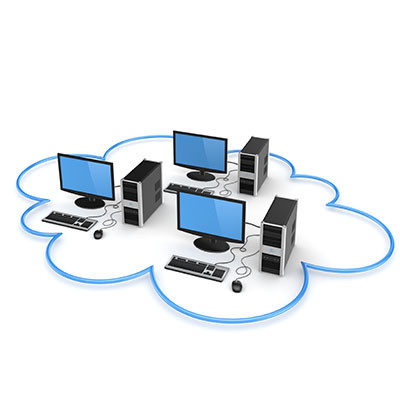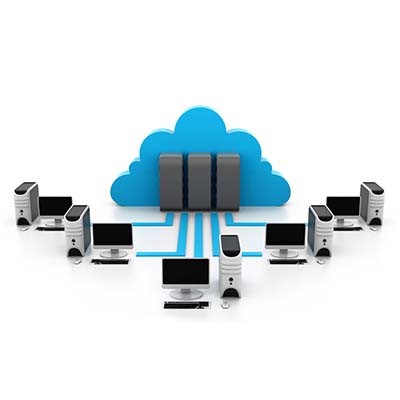How often does your business find that it’s struggling with new technology implementation, either on the software side of the house or on the hardware side? Have you considered that the cloud provides powerful solutions to your business’ woes in the form of virtualization? With the right resources at your disposal, you can use virtualization to create incredible opportunities to improve operations for your business and make it more secure and flexible in the process.
EZ MSP Blog
When you virtualize a software solution, you are essentially storing it in an online environment where it can live. In other words, it remains in the cloud and is accessed through the Internet. This approach is helpful for many businesses, so why not flip this concept on its head and give hardware virtualization a shot? You might find that virtual workstations, for example, offer many benefits that can help your company be more productive and efficient.
Many companies have been in business for so long that they still utilize legacy applications for specific purposes within their computing infrastructure. There simply might not be a better option at the time, so they continue to rely on software that is, quite frankly, showing its age, including the server software that runs their business. Virtual machines offer these organizations the opportunity to still leverage these applications without the inherent risk that comes from using unsupported software.
Virtualization has opened up a lot of doors for businesses who want to make their operations more flexible, but your business can’t simply implement it all willy-nilly. You need to have specific requirements in mind for your cloud hardware. This week’s tip is dedicated to helping you make the best decisions possible regarding the adoption of virtualization for your business’ needs.
 How much thought have you put into your business’s cloud solution? If you haven’t already considered cloud computing, you definitely should. There’s a reason why cloud spending is in third place overall in IT expenditures, and that’s thanks to the overwhelming benefits that it offers in contrast to the traditional IT network model.
How much thought have you put into your business’s cloud solution? If you haven’t already considered cloud computing, you definitely should. There’s a reason why cloud spending is in third place overall in IT expenditures, and that’s thanks to the overwhelming benefits that it offers in contrast to the traditional IT network model.
 The modern business world is constantly evolving, and one of the revolutions that have allowed for this is virtualization. You might have heard about server virtualization or even desktop virtualization. Did you know that you can virtualize your applications, too? In fact, it can be one of the most valuable uses for virtualization, especially considering the upcoming Windows Server 2003 end-of-support date.
The modern business world is constantly evolving, and one of the revolutions that have allowed for this is virtualization. You might have heard about server virtualization or even desktop virtualization. Did you know that you can virtualize your applications, too? In fact, it can be one of the most valuable uses for virtualization, especially considering the upcoming Windows Server 2003 end-of-support date.
 Most IT administrators see virtualization as a means of increasing efficiency, and they’re not wrong. Virtualization of your hardware is a great way of decreasing operating costs and improving accessibility to mission-critical applications and information. However, network virtualization has the potential to increase the security of your business’s data, too.
Most IT administrators see virtualization as a means of increasing efficiency, and they’re not wrong. Virtualization of your hardware is a great way of decreasing operating costs and improving accessibility to mission-critical applications and information. However, network virtualization has the potential to increase the security of your business’s data, too.
 Some businesses are finding hardware virtualization to be an effective alternative to hosting their own servers in-house, and for good reason. They save money that would ordinarily be spent on electricity and operating costs associated with owning machinery. Similar to these virtual servers and workstations are what are known as “thin clients.”
Some businesses are finding hardware virtualization to be an effective alternative to hosting their own servers in-house, and for good reason. They save money that would ordinarily be spent on electricity and operating costs associated with owning machinery. Similar to these virtual servers and workstations are what are known as “thin clients.”
 Virtualization is all the rage in the technology world. In fact, virtual servers are practically omnipresent in modern workplaces. Why? Because they offer businesses unprecedented opportunity for growth and development. The benefits of virtualized servers far outweigh the costs, aiding businesses in expanding their goals and visions for the future.
Virtualization is all the rage in the technology world. In fact, virtual servers are practically omnipresent in modern workplaces. Why? Because they offer businesses unprecedented opportunity for growth and development. The benefits of virtualized servers far outweigh the costs, aiding businesses in expanding their goals and visions for the future.
 The world is slowly being overrun by machinery, and we are finding new uses for it every day. While not an entirely new subject, desktop virtualization is something that has become increasingly popular over the past few years, and it's easy to see why. Instead of keeping your desktop in a physical form, it's becoming more reliable to keep it digitally tucked away, safe and sound. This frees it from the potential physical problems associated with computers, such as a sudden crash or just dying out with age.
The world is slowly being overrun by machinery, and we are finding new uses for it every day. While not an entirely new subject, desktop virtualization is something that has become increasingly popular over the past few years, and it's easy to see why. Instead of keeping your desktop in a physical form, it's becoming more reliable to keep it digitally tucked away, safe and sound. This frees it from the potential physical problems associated with computers, such as a sudden crash or just dying out with age.
 Virtualization services are nothing new in the technology industry, but the way we take advantage of it is always evolving. You’ve heard of server virtualization, where you separate the software operating the server from the hardware itself; but have you heard of desktop virtualization, and the vast benefits it can provide for your business?
Virtualization services are nothing new in the technology industry, but the way we take advantage of it is always evolving. You’ve heard of server virtualization, where you separate the software operating the server from the hardware itself; but have you heard of desktop virtualization, and the vast benefits it can provide for your business?







